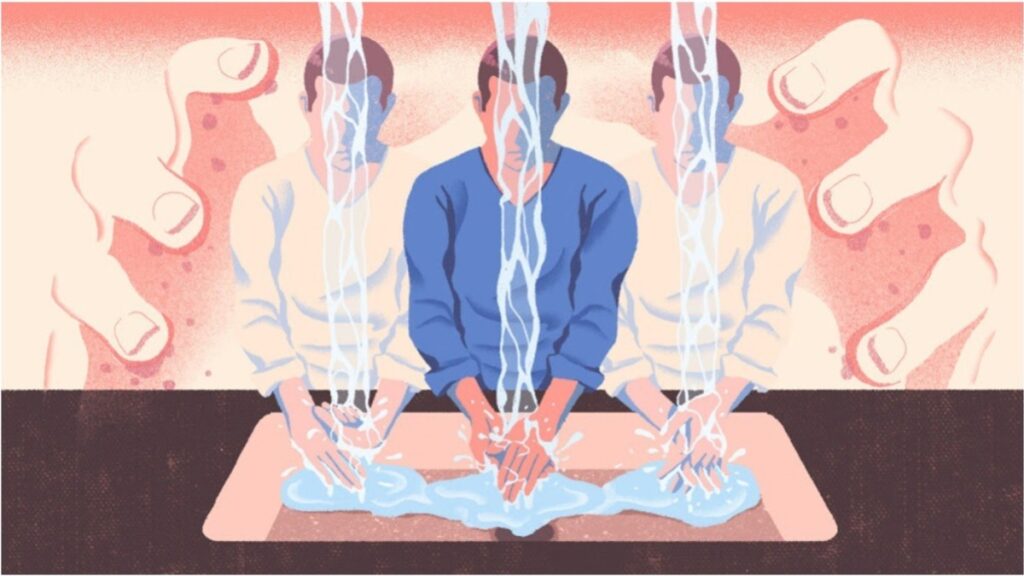Obsessive thoughts can be incredibly debilitating, and for some people, they’re a chronic issue. In fact, it’s estimated that up to one-third of the population suffers from some form of obsessive thought disorder. If you’re struggling with obsessive thoughts, or you know someone who is, read on for information on the best treatment options out there. You may be surprised to know just how many effective treatments are available.
Contents
What Are Obsessive Thoughts?

Obsessive thoughts are any irrational, intrusive thoughts that keep a person constantly preoccupied. They can be disturbing and interfere with daily life. Obsessive thoughts can be mild or severe, but they all share one common feature: they’re uncontrollable.
The best treatment for obsessive thoughts is usually some form of cognitive-behavioural therapy (CBT). CBT is a type of psychotherapy that focuses on changing the way a person thinks and behaves. It typically involves helping the individual identify and change their maladaptive thinking patterns. This can help reduce the intensity and frequency of obsessive thoughts.
There is no single “cure” for obsessive thoughts, but CBT is often effective in reducing their severity and preventing them from returning. If you’re struggling with obsessions, it’s important to seek out professional help. There are many treatments available, and finding the right one can make a huge difference in your life.
Obsessive Thoughts and Mental Health Disorders
 Obsessive thoughts and mental health disorders are two very different things. Mental health disorders are illnesses that affect your mood, thoughts, and feelings. obsessive thoughts are just something that people may experience sometimes. There is no one right answer for treating obsessive thoughts, as each person will respond differently to different treatments. However, there are some things that can help ease the symptoms of obsessive thoughts.
Obsessive thoughts and mental health disorders are two very different things. Mental health disorders are illnesses that affect your mood, thoughts, and feelings. obsessive thoughts are just something that people may experience sometimes. There is no one right answer for treating obsessive thoughts, as each person will respond differently to different treatments. However, there are some things that can help ease the symptoms of obsessive thoughts.
Some people find relief from focusing on a particular thought or image over and over again. This can be done by using a technique called cognitive restructuring. This involves breaking the obsession down into smaller parts, thinking about what it is you’re actually worried about, and then working on addressing those concerns one at a time.
Some people find relief from talking about their obsessions with a therapist or another person who understands them well. Talking about these Thoughts can help them come to terms with them and begin to see them as part of who they are rather than something to be scared or ashamed of.
Treatment Options for Obsessive Thoughts
There is no single cure for obsessive thoughts, but there are a number of different treatment options available. Some people find relief through medication or therapy, while others find relief through mindfulness or meditation. There is no one right answer for everyone, so it’s important to talk with your doctor about the best treatment option for you.
Medication can be an effective treatment for obsessive thoughts if it’s used in combination with other treatments such as therapy or mindfulness. Medications like SSRIs (selective serotonin reuptake inhibitors) and SNRIs (norepinephrine reuptake inhibitors) work by changing the way the brain processes thoughts and emotions. They can help reduce the intensity and frequency of obsessions, but they aren’t always effective. It takes time to see improvement from therapy and medication, so be patient and keep trying different approaches until you find something that works best for you.
Mindfulness and meditation are two other popular forms of treatment for obsessive thoughts. Mindfulness involves focusing on the present moment and accepting what is happening without judgment. Meditation involves using mental techniques to focus attention on specific parts of your body or a particular object. Both mindfulness and meditation have been found to be helpful in reducing the intensity and frequency of obsessions. However, they aren’t always easy to learn and may require some practice before they become effective. If you aren’t finding relief from traditional treatments, consider exploring these other options as well.
How do I stop obsessive thoughts naturally?
 There is no single answer to curing obsessive thoughts, as the best treatment will vary depending on the individual. However, there are a few ways to help lessen the intensity and frequency of intrusive thoughts.
There is no single answer to curing obsessive thoughts, as the best treatment will vary depending on the individual. However, there are a few ways to help lessen the intensity and frequency of intrusive thoughts.
One approach is to try and relax oneself. This can be done by focusing on your breath, counting backwards from 10, or simply taking some time for yourself each day to relax. Practising meditation or mindfulness can also help reduce stress and promote relaxation.
Another approach is to engage in physical activity. This can help increase serotonin levels, which may lead to a reduction in obsessive thoughts. Additionally, engaging in exercise can also boost self-confidence and improve moods overall.
Lastly, it is important to seek out professional help if obsessive thoughts continue to be a major problem. Clinics that specialize in mental health disorders may be able to provide more tailored treatment plans for individuals who suffer from this type of disorder.
Conclusion
If you or someone you know is struggling with obsessive, intrusive thoughts, there are a variety of treatments available that can help. Some people find cognitive behavioural therapy (CBT) to be the most effective, while others respond well to medication. No matter which treatment is chosen, it is important to remember that not everyone will respond the same way and that patience and perseverance are key factors in recovering from OCD.
For more information and guidance, please contact OCDMantra. OCD is a mental health disorder characterized by obsessions and compulsions. If you have any queries regarding OCD treatment, OCD Counseling, ERP therapy experienced therapists at OCDMantra can help: Book a trial OCD therapy session


